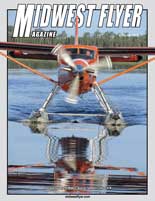by Greg Reigel
As you may know, FAR 61.113(c) prohibits a private pilot from paying less than his or her pro-rata share of the operating expenses of a flight. In the context of charitable medical flights (e.g. Angel Flight, Lifeline Pilots, Volunteer Pilots Association, etc.), pilots have typically been paying all of the operating expenses of such flights without any reimbursement. However, under the FAA Reauthorization and Reform Act of 2011, that may change.
Section 821 of the Reauthorization Act now requires the FAA to interpret FAR 61.113(c) to “allow an aircraft owner or operator to accept reimbursement from a volunteer pilot organization for the fuel costs associated with a flight operation to provide transportation for an individual or organ for medical purposes (and for other associated individuals).” In order to qualify, the aircraft owner or operator has to volunteer to provide such transportation and he or she has to notify the passengers that the flight is for charitable purposes and is not subject to the same requirements as a commercial flight.
However, along with the good, also comes the unknown and, potentially, bad. The Reauthorization Act also suggests that the FAA “may impose minimum standards with respect to training and flight hours for single-engine, multi-engine, and turbine-engine operations conducted by an aircraft owner or operator that is being reimbursed for fuel costs by a volunteer pilot organization, including mandating that the pilot-in-command of such aircraft hold an instrument rating and be current and qualified for the aircraft being flown to ensure the safety of flight operations.”
Thus, it is possible that the FAA could promulgate regulations with which a volunteer pilot/charitable flying organization would have to comply in order for the pilot to receive reimbursement. Granted, many of the charitable flying organizations already have policies and standards for pilot qualifications, training and currency. However, depending upon what the FAA decides, those policies and standards may or may not be sufficient. Fortunately, the new interpretation is effective now while any rulemaking by the FAA will take many months before it would be effective.
EDITOR’S NOTE: Greg Reigel is an attorney with Reigel Law Firm, Ltd., a law firm located in Hopkins, Minnesota, which represents clients in aviation and business law matters (www.aerolegalservices.com, 952-238-1060, greigel@aerolegalservices.com).










